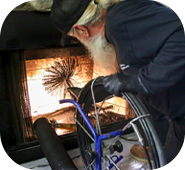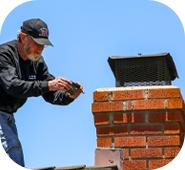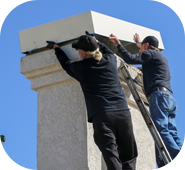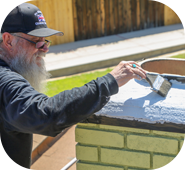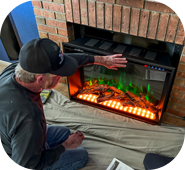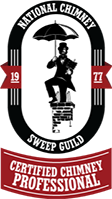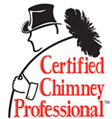Ways to Address a Smelly Chimney
Chimney odors are no fun. You can’t mask them, and leaving the windows open all the time is neither effective nor practical. So, what’s the answer? Fortunately, there are a few things you can do on your own that might solve the problem of odors moving from the chimney to your home. Other smelly chimney issues need to be addressed by an experienced chimney company. Ye Olde Brit Chimney Sweep of San Bernardino, CA, would like to share a little about resolving the most common chimney odors.
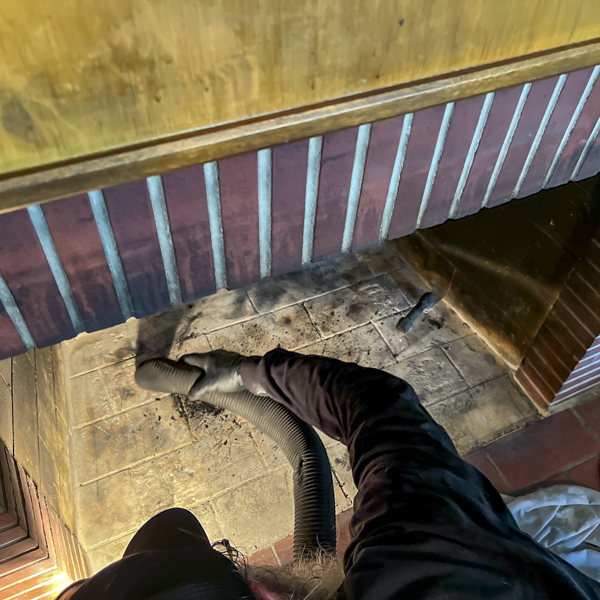
Things you can do about your smelly chimney
Under the best circumstances, chimney flues connected to wood-burning fireplaces are going to carry some level of odor. The odors can be minimized (see below), but they can never be eliminated.
However, there are things you can do to prevent the odorous air from being pulled down into your home. Here are some tips.
1. Maintain positive air flow
You accomplish this by making sure there’s enough air coming into and through the house to apply a constant push against the air in the chimney flue. Sometimes, cracking a window is all that’s needed, especially in more modern, airtight homes.
2. Avoid creating negative air pressure
Negative air pressure can be caused by:
- Exhaust fans in the kitchen or bathroom
- Certain HVAC systems
- Problems with a basement heating system
Minimize the use of exhaust fans. Have heating and cooling systems inspected.
3. Have a chimney cap installed
If your chimney has no cap or flue cover, animals and debris can get into the chimney and create major odor problems (more on this below).
4. Close your damper
Make sure your fireplace damper closes fully and creates a tight seal to block naturally occurring chimney odors.
When you need to call in a chimney technician
Certain smelly chimney problems are more serious and should be looked at by a trained chimney technician.
1. Leaky chimney
A chimney leak will cause moisture to collect inside the chimney and send powerful odors into your home. Water can infiltrate a chimney through:
- Damaged chimney masonry
- Warped or dislodged chimney flashing
- A deteriorated chimney crown
- A damaged or missing chimney cap or chase top
Your technician can make the necessary repairs or component replacements to stop the leak.
2. Creosote buildup
Creosote builds up in flues that serve wood-burning fireplaces. A byproduct of smoke condensation, creosote is a highly flammable, sticky substance that has a burnt, oily smell. It’s recommended that you schedule a thorough
chimney sweep once a year to reduce odors and the chance of a chimney fire.
3. Debris
Leaves and twigs from nearby trees can get into a chimney that doesn’t have a chimney cap. When mixed with moisture and during decomposition, this debris can create some very unpleasant odors. Chimney sweeping will remove the debris. A chimney cap will prevent more of it in the future.
4. Dead animals
Squirrels, birds, rodents, bats and even raccoons like to shelter in chimneys. Certain animals die in there, leading to an odor so powerful it can make you want to evacuate the home. Chimney cleaning will remove dead animals and their nests.

Start with a chimney inspection
If you have an odor issue that you can’t address, the first step is to schedule a chimney inspection by a licensed technician. You’ll quickly find out why the problem exists and what needs to be done about it. Most chimney inspectors can perform repair work and replace damaged chimney components.
Call your Southern California chimney experts
Ye Olde Brit is ready to help with your smelly chimney and all other chimney problems. Speak with a chimney expert today at (909) 880-2120 or get in touch with our simple contact form.


